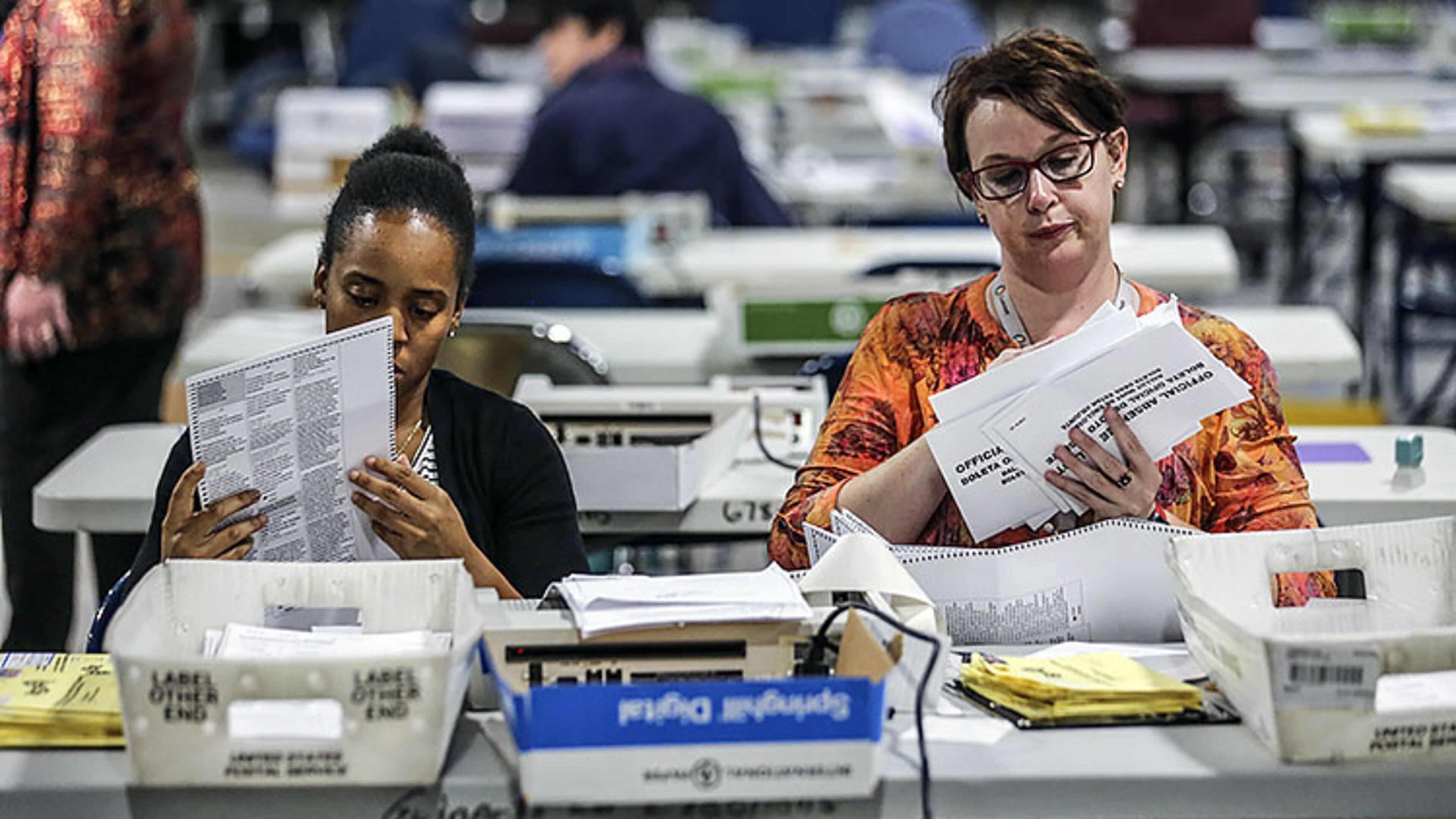Opinion: Toward a better Ga. elections system

There might be a rare sign of bipartisan agreement to say that Georgia’s midterm election – and its aftermath – amounts to a mess.
As a result, the reputation of our state has been tarnished – not a small thing in this growing place that regularly touts that we’re the best location for business. That’s at risk when many outside Georgia are likely viewing us in a similar light as Florida, where election mishaps have a long history. We shouldn’t want to be seen as anywhere near their turf in terms of election competence.
Georgia and its leaders should resolve, on multiple levels, to do better the next time around. The sacred ritual of voting is too important for anything less to transpire.
Let’s recap some of the problems that have surfaced in or around the Nov. 6 election.
For starters, three federal judges are sorting through assertions raised about the accuracy of the balloting results and the mechanics of just who was permitted to cast a ballot.
- New Georgia Secretary of State Robyn Crittenden told 159 county election offices that they must revise election results to include absentee ballots rejected solely because of a missing or incorrect date of birth. Results originally due last Tuesday were to be updated again by Friday if the new guidance changed vote counts. A federal judge instructed Crittenden not to certify results before 5 p.m. Friday, acting on a lawsuit filed by the Democratic Party of Georgia. The judge also denied a request by Democrats to accept provisional ballots from people who tried to vote in a county other than where they were registered.
- Georgia's election officials must also review uncounted provisional ballots and publicize a hotline for voters to check the status of their provisional ballots. This resulted from a lawsuit filed by Common Cause Georgia.
- A ruling last month found that absentee ballots should not be rejected solely because voter signatures don't look to match their handwriting on file. This came as a result of a lawsuit filed by the Georgia Muslim Voter Project.
- In Gwinnett County, a ruling Tuesday found that absentee ballots should not be rejected solely because of an error or omission of a voter's year of birth. That lawsuit was filed by Georgia Democratic congressional candidate Carolyn Bourdeaux and several Georgia voters.
- A ruling found that new U.S. citizens must be allowed to vote on a regular ballot if they provide proof to poll managers when they go to vote, according to a Nov. 2 ruling in a lawsuit filed by the Coalition for the Peoples' Agenda.
The multiple chapters of legal maneuvering are confusing enough. Add in post-election, campaign-style name-calling by both the Democratic and Republican gubernatorial campaigns and it’s easy to see why many are dismayed by the entire affair.
Then there’s the decision by then-Secretary of State Brian Kemp to not resign that office after announcing his run for governor. Sticking around until after the election meant Kemp was overseeing an election system that he was actively participating in as a candidate.
It’s not hard to see why Democrats see this as an unacceptable conflict of interest. At the very least, candidate Kemp’s staying put during the race contributed to significant doubts about the fairness of the election he was charged with conducting. Georgia could have done without this problem.
Taken together, it’s all been enough to temporarily largely drown out reasonable questions about the security of the machines that electronically tally votes in Georgia.
A backdrop to all of this as well are the assertions of voter suppression that hearken back to the Jim Crow era of racial discrimination around the right to vote, among other things.
For the sake of our future, Georgia simply must do better – and fixes should be enacted without delay.
For starters, the Georgia General Assembly should act decisively to improve our election laws and the systems that handle voter ballots. We must make changes intended to remove reasonable doubts as to the fairness, accuracy and equity involved around a cherished American right. Voters must believe that Georgia’s systems are both secure and fair.
The next secretary of state will also play an important role in this regard. Democrat John Barrow and Republican Brad Raffensperger face off, again, in a Dec. 4 runoff election. This Editorial Board asked for their thinking on all this, and their viewpoints are elsewhere on this page. When asked specifically as a follow-up if Raffensperger would recuse himself if he won election and later ran for another office, his campaign responded with this statement: “I have no on intention of running for another office — this is a moot point.”
We believe future Georgia secretaries of state should quickly resign the post upon choosing to pursue another elected office. That would offer a strong inoculation against the perceptions of impropriety that are swirling around this state now.
As importantly, the winner of the runoff should quickly commit to fixing any procedural and mechanical problems that have either bedeviled elections, or raised doubts about whether they were conducted properly. Nothing less can be acceptable in an age of both suspected global electronic interference with balloting and widespread partisan divisions that are fueling doubts about how elections are done.
The problems playing out here since Nov. 6 must be fixed long before the 2020 elections. Georgia, in its push for prosperity, cannot afford to be seen as a laughingstock, given this state’s importance and potential emergence as a key, or even swing, state for elections both nationally and at home.
Andre Jackson, for the Editorial Board.



